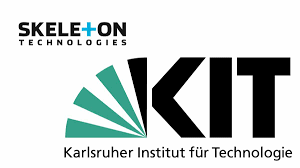
Breaking News
 UPDATE: Reps. Massie & Mace Head to DOJ To View Unredacted Epstein Files
UPDATE: Reps. Massie & Mace Head to DOJ To View Unredacted Epstein Files
 Watch: 'Creepy' Ring Doorbell Camera Super Bowl Commercial Unveils Dragnet-Style Surveillanc
Watch: 'Creepy' Ring Doorbell Camera Super Bowl Commercial Unveils Dragnet-Style Surveillanc
 Moscow Says UK Troops Are Directly Fighting Russia In Ukraine
Moscow Says UK Troops Are Directly Fighting Russia In Ukraine
 BREAKING ANALYSIS: New Epstein Docs Prove He Led Satanic Death Cult That Raped, Tortured...
BREAKING ANALYSIS: New Epstein Docs Prove He Led Satanic Death Cult That Raped, Tortured...
Top Tech News
 SpaceX Authorized to Increase High Speed Internet Download Speeds 5X Through 2026
SpaceX Authorized to Increase High Speed Internet Download Speeds 5X Through 2026
 Space AI is the Key to the Technological Singularity
Space AI is the Key to the Technological Singularity
 Velocitor X-1 eVTOL could be beating the traffic in just a year
Velocitor X-1 eVTOL could be beating the traffic in just a year
 Starlink smasher? China claims world's best high-powered microwave weapon
Starlink smasher? China claims world's best high-powered microwave weapon
 Wood scraps turn 'useless' desert sand into concrete
Wood scraps turn 'useless' desert sand into concrete
 Let's Do a Detailed Review of Zorin -- Is This Good for Ex-Windows Users?
Let's Do a Detailed Review of Zorin -- Is This Good for Ex-Windows Users?
 The World's First Sodium-Ion Battery EV Is A Winter Range Monster
The World's First Sodium-Ion Battery EV Is A Winter Range Monster
 China's CATL 5C Battery Breakthrough will Make Most Combustion Engine Vehicles OBSOLETE
China's CATL 5C Battery Breakthrough will Make Most Combustion Engine Vehicles OBSOLETE
 Study Shows Vaporizing E-Waste Makes it Easy to Recover Precious Metals at 13-Times Lower Costs
Study Shows Vaporizing E-Waste Makes it Easy to Recover Precious Metals at 13-Times Lower Costs
New Graphene-Based SuperBattery To Charge In 15 Seconds

Skeleton Technologies, an ultracapacitor specialist from Estonia, announced that together with the Karlsruhe Institute of Technology (KIT) in Germany, it is working on a new groundbreaking graphene battery named SuperBattery.
The SuperBattery will utilize Skeleton's patented Curved Graphene carbon material to achieve a charging time of just 15 seconds (240C) and charging cycles counted in hundreds of thousands.
As in the case of other ultracapacitors, also this one is not energy-dense enough to replace the lithium-ion batteries, although it beats lead-acid and NiMH, reaching some 60 Wh/kg.
"The key differentiator for the SuperBattery is Skeleton's patented Curved Graphene carbon material, enabling the high power and long lifetime of ultracapacitors to be applied in a graphene battery. Ultracapacitors are increasingly emerging as the ideal complementary technology to lithium-ion batteries, as also shown by Tesla's acquisition of ultracapacitor manufacturer Maxwell Technologies in the hopes of improving batteries used in Tesla's electric vehicles."

 Smart dust technology...
Smart dust technology...

